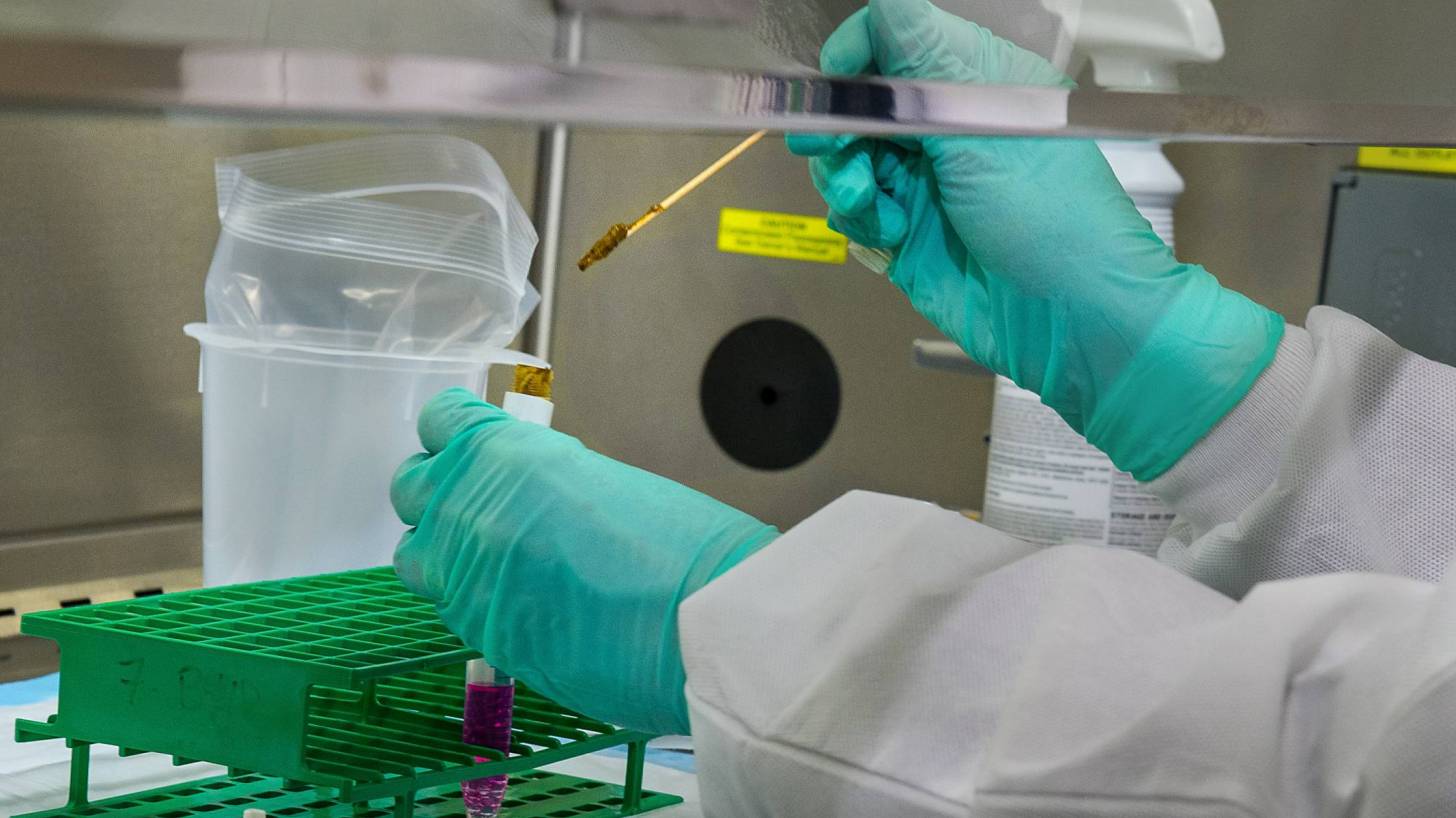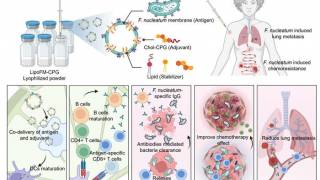Cancer Vaccine Candidate Targeting KRAS Shows Potential

An experimental vaccine designed to enlist the body's own immune system to target cancer cells has shown promise for treating and preventing cancer in mice.
The pre-clinical vaccine candidate was created to target a gene called KRAS that is involved in the development of many types of cancer, including lung, bowel, and pancreatic cancer, said researchers at The Francis Crick Institute, London, UK.
Scientists have known for decades that the KRAS gene goes wrong - or mutates - in many cancers. However, until now, researchers have struggled to find a way to turn this knowledge into an effective treatment.
The vaccine study was carried out by Dr. Rachel Ambler, a postdoctoral research fellow, who said in a press release issued on October 23, 2020: "We know that if KRAS goes wrong, it enables cells in our bodies to start multiplying and turning into cancer cells. Recently, we've learned that, with the right help, the body's immune system might be capable of slowing this growth.”
"We wanted to see if we could use this knowledge to create a cancer vaccine that could not only be used to treat cancer, but also give long-lasting protection against cancer, with minimal side-effects."
Dr. Ambler and her colleagues created a set of vaccines that are capable of stimulating an immune response towards the most common KRAS mutations.
The vaccines are made up of two elements joined together.
One element is a fragment of the protein produced by cancer cells with a mutated KRAS gene. The other element is an antibody that helps to deliver the vaccine to a cell of the immune system called a dendritic cell. These cells play a key role in helping the immune system spot and destroy cancer cells, an ability that could be boosted by the vaccines.
The team tested the vaccine on mice that already had lung tumors and mice that were induced to grow tumors. Researchers studied the mice for indications that their immune systems were responding to the vaccine and for signs that tumors were shrinking or not even forming in the first place.
In mice with tumors, 65% of those treated with the vaccine were alive after 75 days, compared to 15% of mice that were not given the vaccine.
In mice treated to induce tumors, 40% of vaccinated mice remained tumor-free after 150 days, compared to only 5% of unvaccinated mice (one mouse). By vaccinating the mice, researchers found that the appearance of tumors was delayed by an average of around 40 days.
Dr. Ambler added: "When we used the vaccine as a treatment, we found that it slowed the growth of cancers in the mice. And when we used it as a preventative measure, we found that no cancers grew in the mice for quite a long period of time and, in many cases, cancers never developed.”
"Previous trials of cancer vaccines have failed because they have not been able to create a strong enough response from the immune system to find and destroy cancer cells. This research still has a long way to go before it could help prevent and treat cancer in people, but our results suggest that the design of this vaccine has created a strong response in mice with very few side-effects."
Dr. James L. Gulley is co-chair of the 32th EORTC-NCI-AACR Symposium for the NCI and Director of the Medical Oncology Service, Center for Cancer Research, NCI, USA, and was not involved in the research commented: "These studies focus on types of cancer - such as lung and pancreatic cancer - that are difficult to treat. Survival rates for these cancers remain very poor so we urgently need new treatments for patients.”
"Boosting the immune system with drugs to treat cancer or even developing a vaccine to prevent cancer are both exciting possibilities, especially if they can be achieved with minimal side effects. We hope that these promising approaches will one day be reproduced in patients."
Vax-Before-Cancer publishes research-based news.
Our Trust Standards: Medical Advisory Committee

























